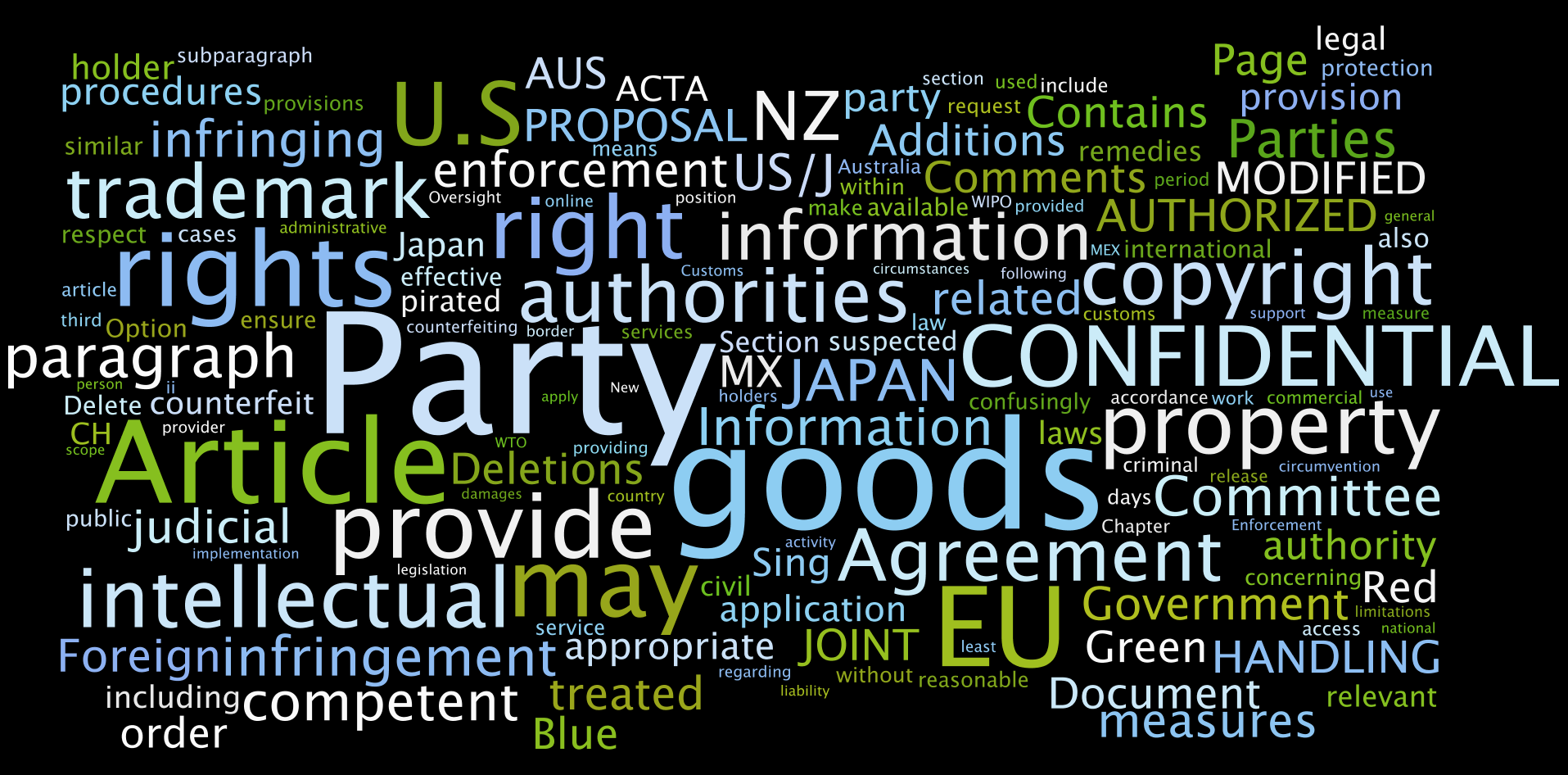USTR asks that briefing on position on ACTA transparency be off the record
The January 2010 Guadalajara, Mexico, meeting on ACTA included an agenda item on transparency. I asked USTR if they could provide TACD with a briefing on transparency and other issues in the negotiation. The one hour briefing was held today. I can report nothing of what the USTR said at the meeting, other than they insisted it be off the record. TACD has asked for an on the record meeting, but that apparently will have to wait until after the New Zealand meetings are held the week of April 12. Continue Reading

